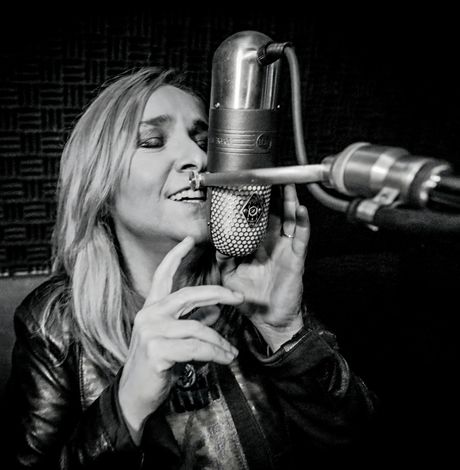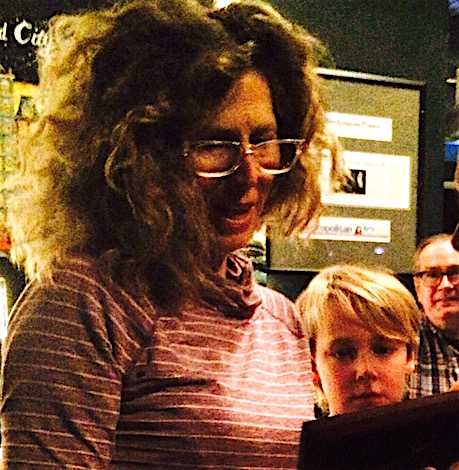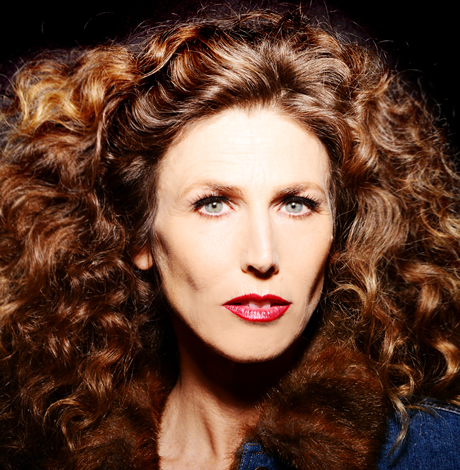Arts & Entertainment
Sophie’s choice
‘90s hitmaker returns after seven years with new album
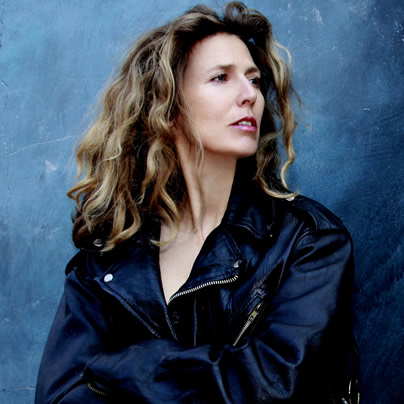
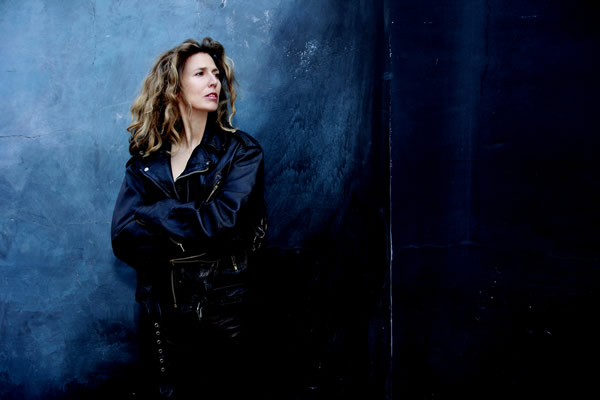
Sophie B. Hawkins released her first studio album in seven years last week. (Photos courtesy Trumpet Swan Entertainment)
How hard is it in this day and age to bounce back from a pop music career misstep? One likes to think pop culture — America ultimately voting with its pocketbook of course — eventually rewards and rediscovers the deserving.
One thinks of Kelly Clarkson who managed a comeback after the ill-advised downer (though it still went Platinum) 2007 album “My December.” And love her or hate her, Mariah Carey beat the odds with the monster-selling “Emancipation of Mimi” after her epic “Glitter” failure (both film and soundtrack).
But what if your supposed misstep isn’t even a bad album? Sophie B. Hawkins was well on her way to establishing distinguished career by the end of the ‘90s. She was red hot right out of the gate — “Damn I Wish I Was Your Lover,” which hit No. 5 on the Billboard Hot 100 in 1992, is a defining song of the era. She was nominated for the Best New Artist Grammy that year (co-nominated with Billy Ray Cyrus, Kriss Kross and Jon Secada; Arrested Development won). She survived the sophomore jinx with another mammoth hit “As I Lay Me Down,” a VH-1 staple from her second album “Whaler” that peaked at No. 6 during a 44-week run on the Hot 100 and a whopping 67 weeks (six at No. 1) on the AC chart. Unless you were in a convent that year, you heard it many, many times.
With that kind of start, the sky was conceivably the limit and expectations ran extremely high for her 1999 follow-up, “Timbre.” But trouble loomed — it’s a famous story, actually: Hawkins’ then label (Sony) only reluctantly released first single “Lose Your Way” with a banjo accompaniment. They argued it was poison for pop radio. Hawkins said it was essential. Though re-released independently in 2001 and followed by an indie follow-up called “Wilderness” in 2004, Hawkins lost her commercial, but not her artistic, footing. “Wilderness” turned out to be an unfortunately apt title — she spent years wandering.
Perhaps this wasn’t a total surprise, though. Anybody who’d paid attention knew Hawkins had a wild streak. She shimmied and writhed like a woman possessed on her duet with Melissa Etheridge on the latter’s VH-1 special in 1995 with a slate of then-hot female singer/songwriters like Joan Osborne, Jewel and Paula Cole. Those who caught Hawkins in concert knew of her penchant for the unconventional. As her audiences got smaller, her jeans got more shredded, her stream-of-consciousness stage meanderings more fluid. She wrangled memorably with Howard Stern about why she doesn’t shave her legs.
Though she’s long shunned labels for sexual orientation, the fact that she’s been in a same-sex relationship with filmmaker Gigi Gaston for several years (Gaston’s “The Cream Will Rise” follows Hawkins on an early tour) is one of the more conventional aspects of her persona. And it’s easy to forget that her wildly eclectic albums are full of intricately crafted and sometimes epic, sometimes disarming power pop that at times rivals Joni Mitchell’s best stuff for complexity and lyrical depth — check out “Mysteries We Understand,” “Only Love” “Help Me Breathe” and “I Need Nothing Else” especially.
Her hit singles are only part of the story. An early MusicHound review said, “Dig (further) than (the hits) and her abilities to seamlessly weave in and out of jazz, folk and dance, all driven by a kind of tribal percussion sensibility (emerge).”
But Hawkins, now 44, is starting to sound her age. Not vocally — her singing still has the luster that struck her chart gold all those years ago, but her insights during an hour-long phone chat last week show a woman who’s thought long and hard about life, pop culture popularity cycles, music making in the Internet age and much more. With no apparent time constraints, Hawkins gamely goes anywhere the questions take her and beyond, from hair tips and why she’s a dog person to the deeper story behind the banjo battles and her still-complicated relationship with her mother (explored memorably in “Cream”). The impetus for all this is her interminably delayed new album “The Crossing,” her first collection of new material in seven years, which dropped last week.
“People were always telling me, ‘Oh, you sold out with ‘Tongues and Tales,’ or, ‘Oh, you sold out with ‘Whaler.’ I’m not saying ‘Tongues and Tales’ was just art for art’s sake, but that was really the best I could to try and reach people,” Hawkins says. “Those albums were the least weird I could possibly be. You want your music to reach people, you want it to get out there to as many as possible, otherwise it’s too isolating. It’s like masturbation, you’re not doing it with anybody.”
Hawkins considers herself part of a group of ‘90s women singer/songwriters — she mentions Paula Cole and Tori Amos as peers — who barely “squeezed through” the music industry gate before the doors shut altogether, from the advent of file sharing to endless label buyouts that left precious few major players in the game. Yes, there are still women hitmakers — Rihanna, Adele — but they’re few and far between and getting younger all the time.
“I think everybody knew what was going to happen, the chilly winds were already blowing,” she says. “I felt with the first album like, ‘Wow, I really got away with something’ in spite of all this. Then with ‘Whaler’ it felt like that again, although that was really the beginning of the fight. … In the ‘90s, it really started turning against the individual artist into this totally corporate thing in every way. It was like, ‘Oh, I’m with this group, I’m with that group, this is Sophie’s sound, this is the lesbian sound, the country artist, the right wing, the left wing — I feel like several of us just barely squeaked through in spite of all that.”
And yes, some of that line of thinking is what’s led Hawkins to shun traditional LGBT labels.
She admits she and Gaston have been in an exclusive relationship (Gaston is also her manager), but says a lack of general perception of nuance causes her to avoid certain language.
“It’s because nobody listens,” Hawkins says. “They just want to say it, and shut up and not hear any more about it. I love the word bisexual but it has such a negative connotation, I don’t know why. It’s like this big, scary thing for people so I’ve tried to come up with something that’s what I really think I am … I’m definitely not heterosexual or homosexual, I love men and women equally and passionately. I’m just having a relationship right now with a woman and I think there are very few men I could have a relationship with. I’m a very singular person. I’m committed to this woman, but if I were not, I’d probably be alone.”
The years since “Wilderness” have not been inactive for Hawkins. She became a mother — her son with Gaston, Dashiell, is 3. She popped up at the Grammys pre-show as a presenter, campaigned avidly for Hillary Clinton’s presidential campaign, released several singles along the way including one (“The Land, the Sea and the Sky”) as a benefit for the Waterkeeper Alliance, an environmental group.
She released a live album and her song “Life is a Bomb” was on the soundtrack for the 2011 Garry Marshall film “New Year’s Eve,” a feat Hawkins says was wildly against the odds. She also tweaked “The Crossing” endlessly as the years went by and various proposed release dates came and went. Hawkins says it’s “a miracle” the album came out at all.
She also worked with Gaston on a musical for Kristin Chenoweth that’s on hold until Chenoweth’s producer of choice is available and she has high hopes for an October musical in Los Angeles (Hawkins lives in Venice, Calif., and has been on the West Coast for more than a decade) in which she’ll star as Janis Joplin.
Hawkins says she knew instinctively, she was supposed to do the Joplin piece.
“My reaction was just, ‘Yes,’ and I never say yes to anything right away. I just think there’s something I can do with Janis that will speak to every creative person out there who feels overlooked or treated in a way that’s not fair. … If we can get this ball in the basket, I have a good feeling about this, I think it could be a slam dunk. It will be so relevant to now, it really gives me a freedom I cannot even tell you.”
Hawkins guesses, counting the Chenoweth musical and “The Crossing” material, she’s written about 300 songs in the last seven years. The album will include acoustic remakes of “Damn” and “As I Lay Me Down.” Hawkins has a distribution deal with EMI for the release.
Hawkins says she’s a huge dog lover because she could never have one as a kid. She loves them because there’s “no barrier” to their affection and presence.
Of her trademark abundant tresses, Hawkins says her only hair care tip is to avoid washing it as much as possible. She insists hers looks best when it’s been weeks since the last shampoo.
“That’s when I always get the most compliments, people saying ‘Oh, you have such great hair.’”
She’s also realistic about “The Crossings” commercial prospects. She says she’ll never stoop to giving her music away but realizes the chances of duplicating her early chart success are practically nil.
On one hand, Hawkins says her art (she paints too) is something she “couldn’t not do.” Conversely, she says it’s Gaston who has urged her to continue against increasingly difficult industry and commercial odds.
“She’s so much more than a manager,” Hawkins says. “Things bother her more than they bother me. Oh, believe me, I would have just gone away by now and written and painted by myself if it weren’t for her. I don’t think I could have survived but she tells me, ‘You’re not giving up, you’re a great artist, it kills me that people don’t see this.’ She really takes it on as one of her missions.”
So in hindsight, was the banjo battle worth it?
Hawkins says the story has gotten oversimplified as a kind of cautionary tale for supposedly overambitious pop singers — as in, “Remember Sophie B. Hawkins? Look what happened to her.”
She says it was more an issue of increasing pressure to write songs in huge groups of collaboration Hawkins found unwieldy and artistically stifling. She says she would have agreed to remove the banjo line for the radio version and kept it on a remix or B-side version (“Believe me, all those scenarios were discussed”), but push came to shove when label execs put their foot down over her using it for a live TV appearance.
“It was really the straw that broke the camel’s back,” she says. “It was such a clear thing to me. They were taking away my horse, in a way. I thought, ‘I can’t ride into battle without my horse. I can’t win without the horse.’ It just made me realize we weren’t on the same team anymore. … They were no longer rooting for me to win, they were trying to destroy me.”
Hawkins says she’s learned to find rewards in non-traditional places. Even though her relationship with her mother is still every bit as complicated as it was portrayed in “Cream,” Hawkins says there are sparks of healing and inspiration there too.
“There are artistic people out there struggling who never make at all,” she says. “So when somebody tells me they get it, it’s like winning an Oscar. My mother called me the other day and told me she’d listened to the new album. She said she’d felt it, whatever it was, this profound thing in the music. If your parents are alive and you get that, that’s my Grammy.”
a&e features
Transmission DC breathes new life into a storied sound space
A fresh home for boundary-pushing culture on H Street

Late last year, phoenix-style, a fresh home for boundary-pushing culture arose on the H Street corridor. Transmission DC – a queer, trans, and POC-owned, operated, and centered community-focused venue – powered on in the former home to the Rock & Roll Hotel (famously, not a hotel, but very much rock & roll). Transmission (1353 H St., N.E.) arrives secure in its mandate – or even birthright – to provide a place to celebrate creativity and music through a lens of inclusivity and respect.
Transmission’s team brings experience, but also representation. Owners/partners Kabir Khanna (who is also programming director), Katii B, Ellie McDyre, and Kelli Kerrigan together previously managed 618 productions, a venue in Chinatown, crafting “some of D.C.’s freakiest parties, raves, and mosh pits” they note.
They packed up operations last fall to a space curated specifically for D.C.’s underground music and culture scene, building their efforts in Chinatown to bring in more fans in queer and POC circles.
Transmission, Khanna points out, is built on DIY values. In the music scene, DIY means that promoters and organizers – often disconnected from the mainstream and part of marginalized communities – build shows and programs collaboratively, but independently from institutions, supporting each other as smaller, independent venues close. Here, Transmission aims to ensure that those putting together these underground inclusive shows have a more permanent and stable home, can have access to resources, and can provide more sustainable income to artists. “We’re trying to get more people to support and enjoy the music, and also give artists and organizers within the DIY community more structure and a larger cut,” says Khanna.
Khanna also notes that Transmission operates “under the principles of safety, inclusivity, and respect.” McDyre added that even at venues that claim inclusivity, that statement might not take place in practice. We’re “not just pitting up a rainbow flag,” says McDyre, but as some of the owners are trans and POC, audiences can see themselves reflected at the top.
Much like the DIY nature of the music community, the Transmission owners brought a DIY ethos to turning around their space.
In March 2020 – the height of COVID lockdowns – Rock & Roll Hotel suddenly shuttered, though not due to the pandemic; instead, the venue claimed that decreasing sales and increasing competition led to the closure. For 14 years, it was the central spot for cheap beer and lesser-known and celebrated acts. The space stood vacant for more than five years, until Transmission turned the power back on.
“When we got into the space, it was effectively abandoned for years,” says Khanna. “There was a ton of mold, and paint primer covering all surfaces. It was nearly falling apart.” Khanna noted that many music venues like this one, regardless of how well it was maintained, “get the shit kicked out of it,” given the nature of shows. The team called in mold removal contractors, ripped up most of the floorboards, and started fresh.
Transmission’s first floor is styled as a stripped-down black box: the better to take in the music. “It’s minimal on purpose to act as a canvas for set design and music,” without a specific aesthetic, says Khanna. Moving upstairs, the second floor has been opened up, removing some walls, and now has a larger dance area than the first floor. Beyond the first two performance levels, and a holdover from Rock & Roll Hotel, is the rooftop. Though without a stage, the rooftop space is filled with murals splashed across the walls, with a full bar. Transmission’s current capacity is 496, but the team is looking to grow that number. Transmission will also leverage the full kitchen that Rock & Roll Hotel operated, bringing in Third Hand Kitchen to offer a variety of food, including vegan and vegetarian options.
Khanna pointed out an upcoming show reflective of Transmission’s inclusive ethos: Black Techo Matters on Feb. 27. The event is set to be “a dynamic, collaborative night of underground electronic music celebrating Black History Month.” Khanna says that techno came from Black music origins, and this event will celebrate this genesis with a host of artists, including DJ Stingray 313, Carlos Souffront, and Femanyst.
Movies
Moving doc ‘Come See Me’ is more than Oscar worthy
Poet Laureate Andrea Gibson, wife negotiate highs and lows of terminal illness

When Colorado Poet Laureate Andrea Gibson died from ovarian cancer in the summer of 2025, the news of their passing may have prompted an outpouring of grief from their thousands of followers on social media, but it was hardly a surprise.
That’s because Gibson – who had risen to both fame and acclaim in the early 2000s with intense live performances of their work that made them a “superstar” at Poetry Slam events – had been documenting their health journey on Instagram ever since receiving the diagnosis in 2021. During the process, they gained even more followers, who were drawn in by the reflections and explorations they shared in their daily posts. It was really a continuation, a natural evolution of their work, through which their personal life had always been laid bare, from the struggles with queer sexuality and gender they experienced in their youth to the messy relationships and painful breakups of their adult life; now, with precarious health prohibiting a return to the stage, they had found a new platform from which to express their inner experience, and their fans – not only the queer ones for whom their poetry and activism had become a touchstone, but the thousands more who came to know them through the deep shared humanity that exuded through their online presence – were there for it, every step of the way.
At the same time, and in that same spirit of sharing, there was another work in progress around Gibson: “Come See Me in the Good Light,” a film conceived by their friends Tig Notaro and Stef Willen and directed by seasoned documentarian Ryan White (“Ask Dr. Ruth”, “Good Night, Oppy”, “Pamela, a Love Story”), it was filmed throughout 2024, mostly at the Colorado home shared by Gibson and their wife, fellow poet Megan Falley, and debuted at the 2025 Sundance Film Festival before a release on Apple TV in November. Now, it’s nominated for an Academy Award.
Part life story, part career retrospective, and part chronicle of Gibson and Falley’s relationship as they negotiate the euphoric highs and heartbreaking lows of Gibson’s terminal illness together, it’s not a film to be approached without emotional courage; there’s a lot of pain to be vicariously endured, both emotional and physical, a lot of hopeful uplifts and a lot of crushing downfalls, a lot of spontaneous joy and a lot of sudden fear. There’s also a lot of love, which radiates not only from Gibson and Falley’s devotion and commitment to being there for each other, no matter what, but through the support and positivity they encounter from the extended community that surrounds them. From their circle of close friends, to the health care professionals that help them navigate the treatment and the difficult choices that go along with it, to the extended family represented by the community of fellow queer artists and poets who show up for Gibson when they make a triumphant return to the stage for a performance that everyone knows may well be their last, nobody treats this situation as a downer. Rather, it’s a cause to celebrate a remarkable life, to relish friendship and feelings, to simply be present and embrace the here and now together, as both witness and participant.
At the same time, White makes sure to use his film as a channel for Gibson’s artistry, expertly weaving a showcase for their poetic voice into the narrative of their survival. It becomes a vibrant testament to the raw power of their work, framing the poet as a seminal figure in a radical, feminist, genderqueer movement which gave voice to a generation seeking to break free from the constraints of a limited past and imagine a future beyond its boundaries. Even in a world where queer existence has become – yet again – increasingly perilous in the face of systemically-stoked bigotry and bullying, it’s a blend that stresses resilience and self-empowerment over tragedy and victimhood, and it’s more than enough to help us find the aforementioned emotional courage necessary to turn what is ultimately a meditation on dying into a validation of life.
That in itself is enough to make “Come See Me in the Good Light” worthy of Oscar gold, and more than enough to call it a significant piece of queer filmmaking – but there’s another level that distinguishes it even further.
In capturing Gibson and Falley as they face what most of us like to think of as an unimaginable future, White’s quietly profound movie puts its audience face-to-face with a situation that transcends all differences not only of sexuality or gender, but of race, age, or economic status as well. It confronts us with the inevitability few of us are willing to consider until we have to, the unhappy ending that is rendered certain by the joyful beginning, the inescapable conclusion that has the power to make the words “happily ever after” feel like a hollow promise. At the center of this loving portrait of a great American artist is a universal story of saying goodbye.
Yes, there is hope, and yes, good fortune often prevails – sometimes triumphantly – in the ongoing war against the cancer that has come to threaten the palpably genuine love this deeply-bonded couple has found together; but they (and we) know that, even in the best-case scenario, the end will surely come. All love stories, no matter how happy, are destined to end with loss and sorrow; it doesn’t matter that they are queer, or that their gender identities are not the same as ours – what this loving couple is going through, together, is a version of the same thing every loving couple lucky enough to hold each other for a lifetime must eventually face.
That they meet it head on, with such grace and mutual care, is the true gift of the movie.
Gibson lived long enough to see the film’s debut at Sundance, which adds a softening layer of comfort to the knowledge we have when watching it that they eventually lost the battle against their cancer; but even if they had not, what “Come See Me in the Good Light” shows us, and the unflinching candor with which it does so, delivers all the comfort we need.
Whether that’s enough to earn it an Oscar hardly matters, though considering the notable scarcity of queer and queer-themed movies in this year’s competition it might be our best shot at recognition.
Either way, it’s a moving and celebratory film statement with the power to connect us to our true humanity, and that speaks to a deeper experience of life than most movies will ever dare to do.
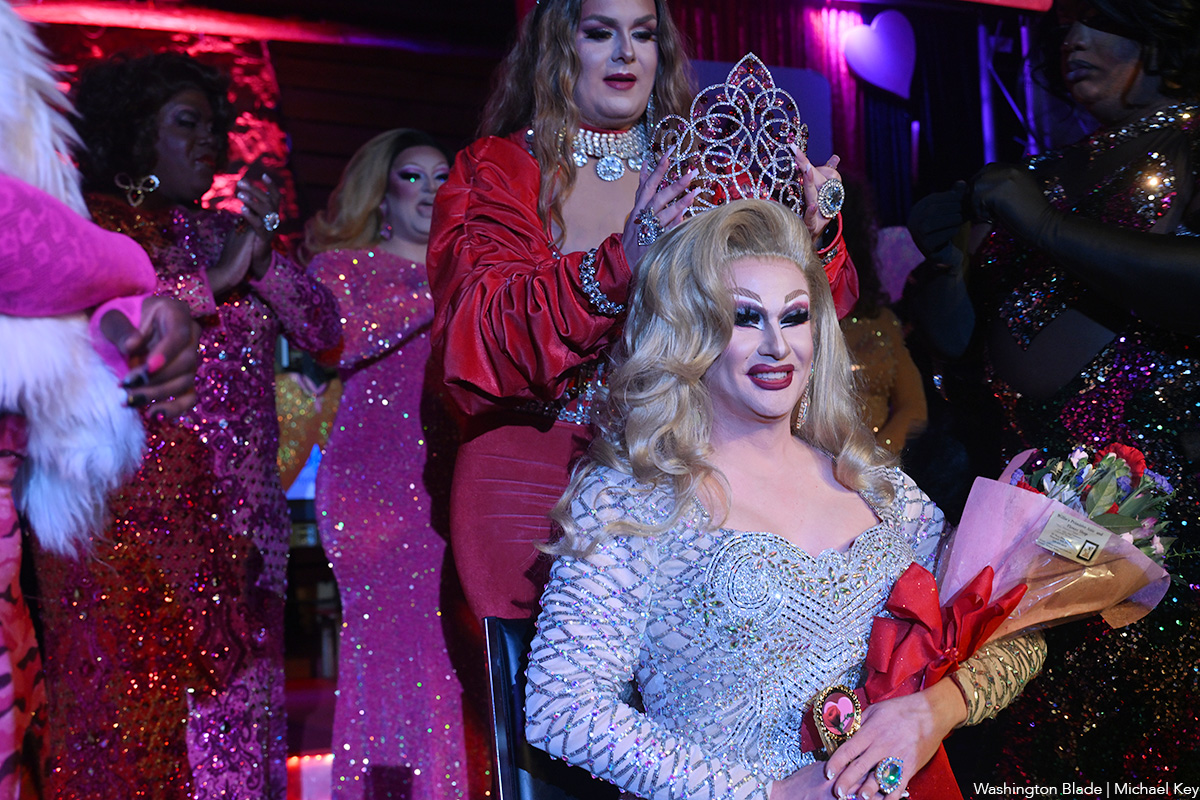
The 44th annual Queen of Hearts pageant was held at The Lodge in Boonsboro, Md. on Friday, Feb. 20. Six contestants vied for the title and Bev was crowned the winner.
(Washington Blade photos by Michael Key)
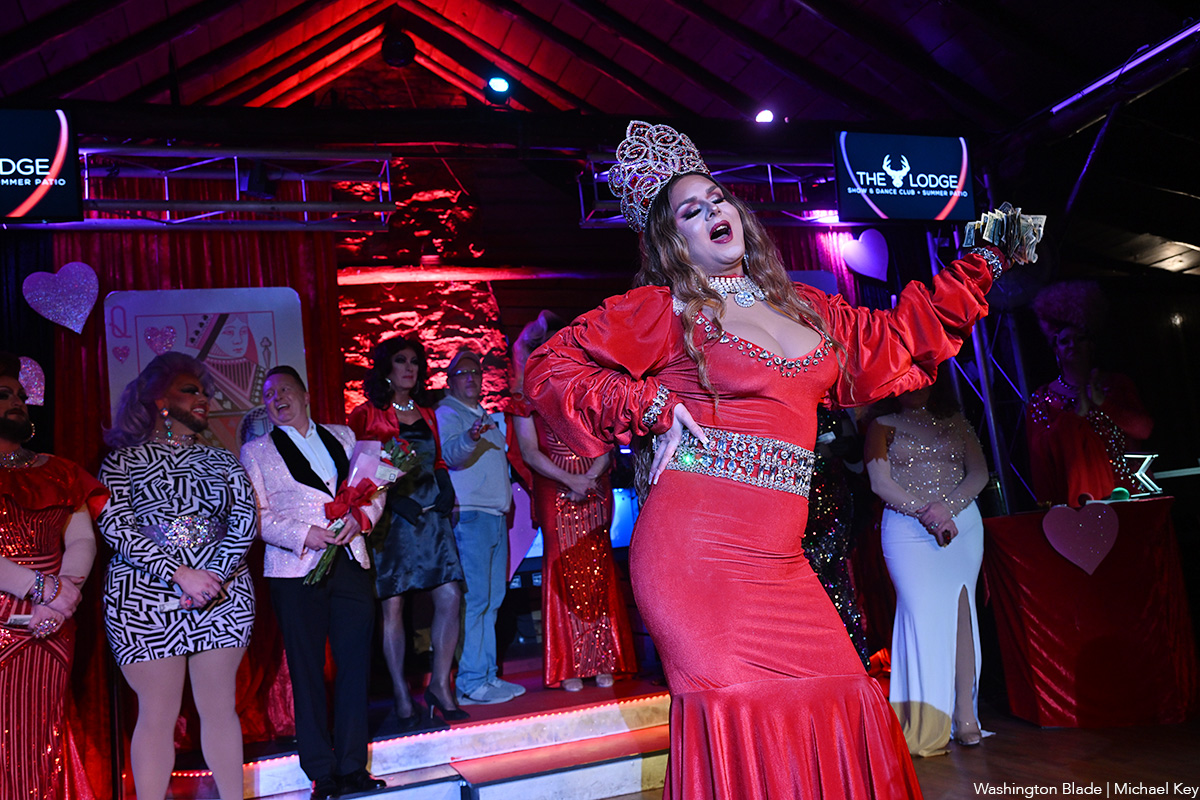
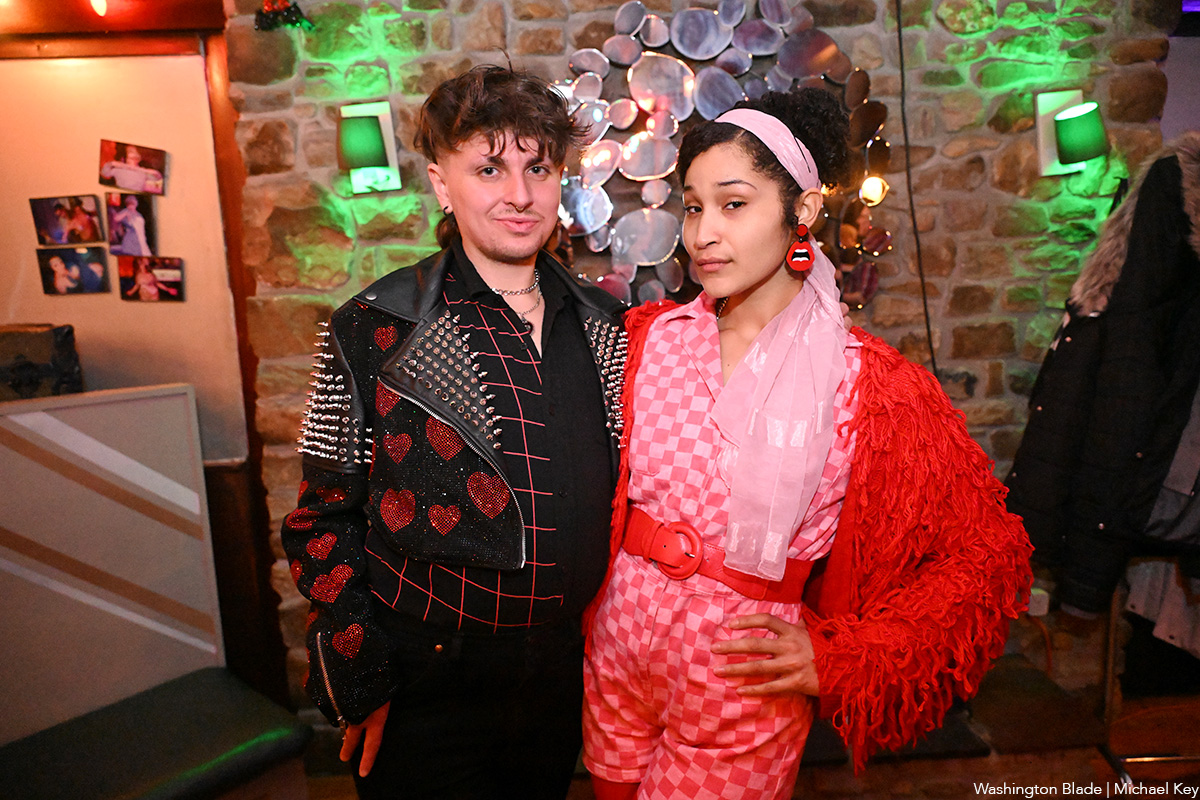
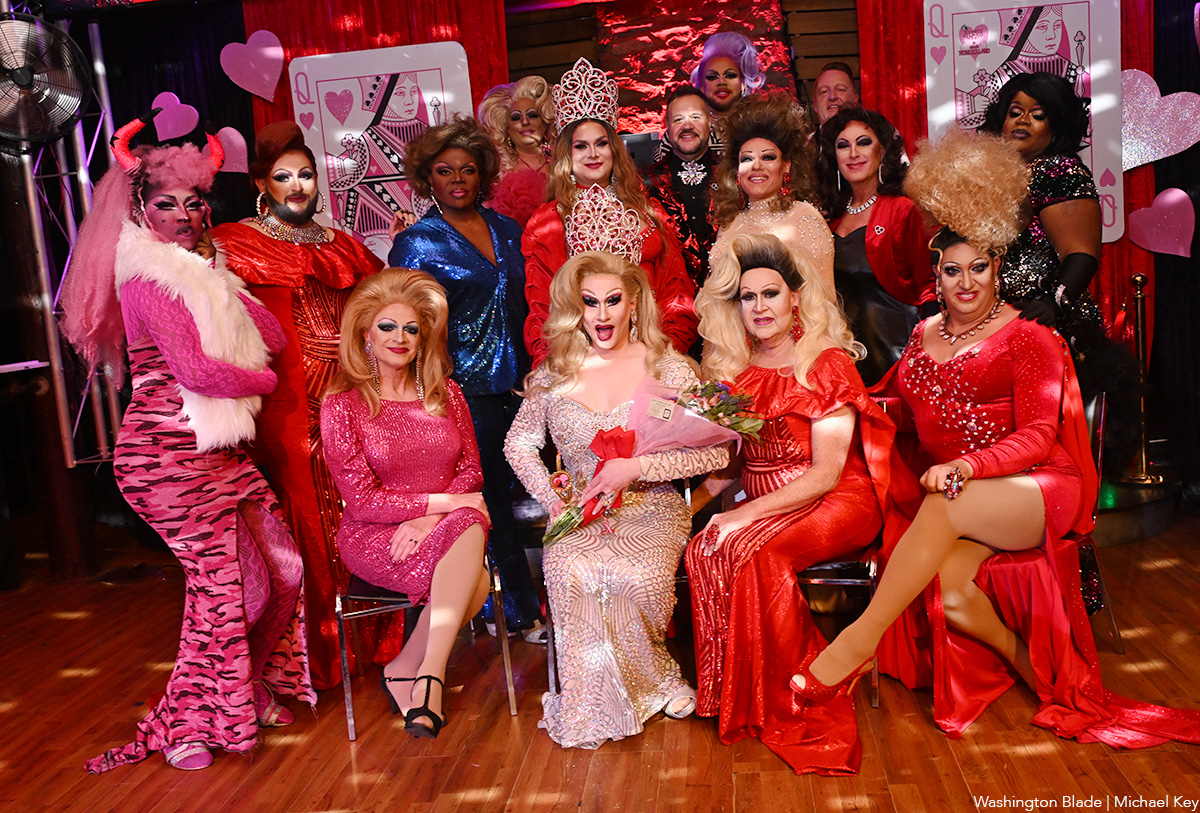
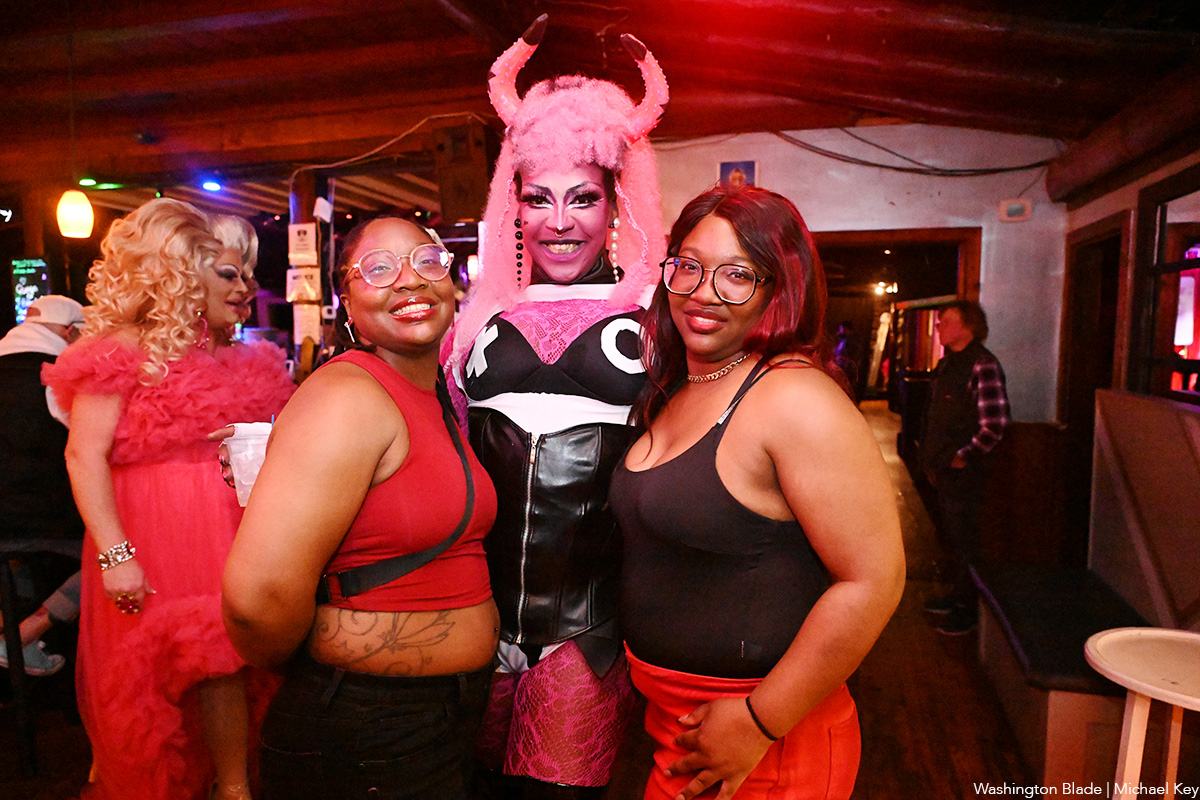
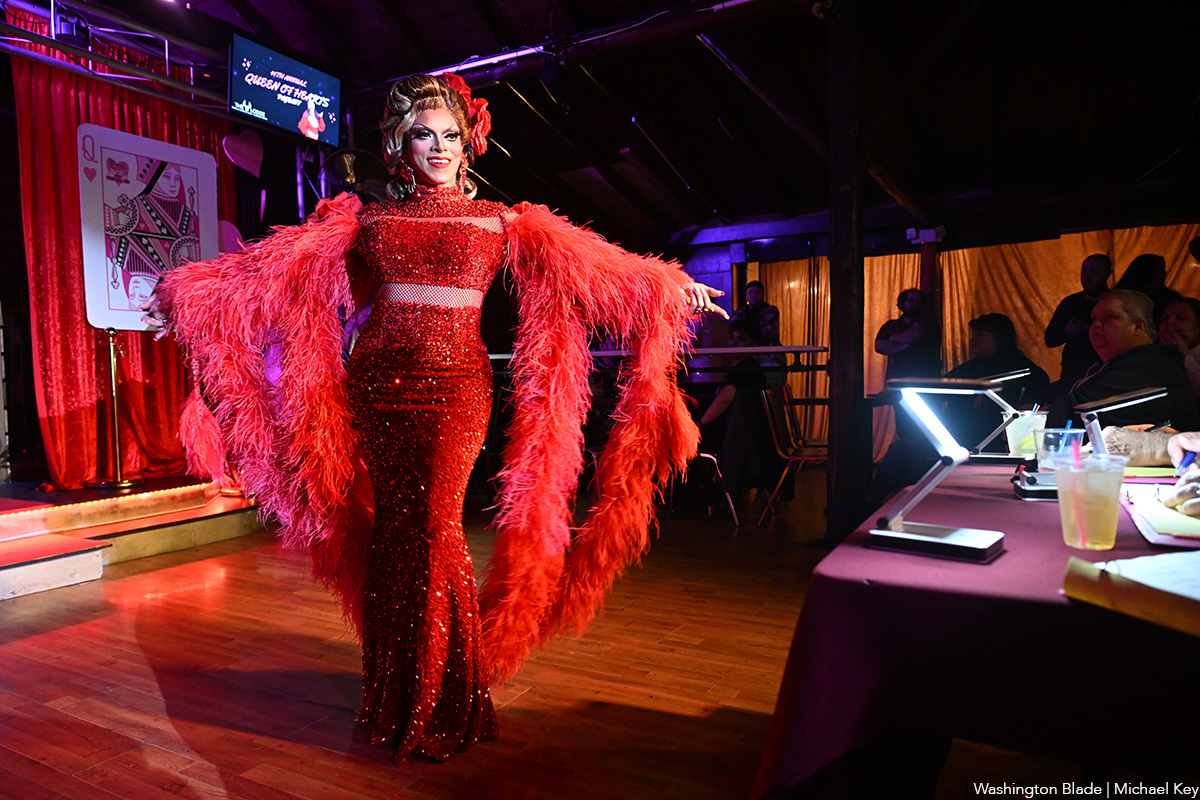
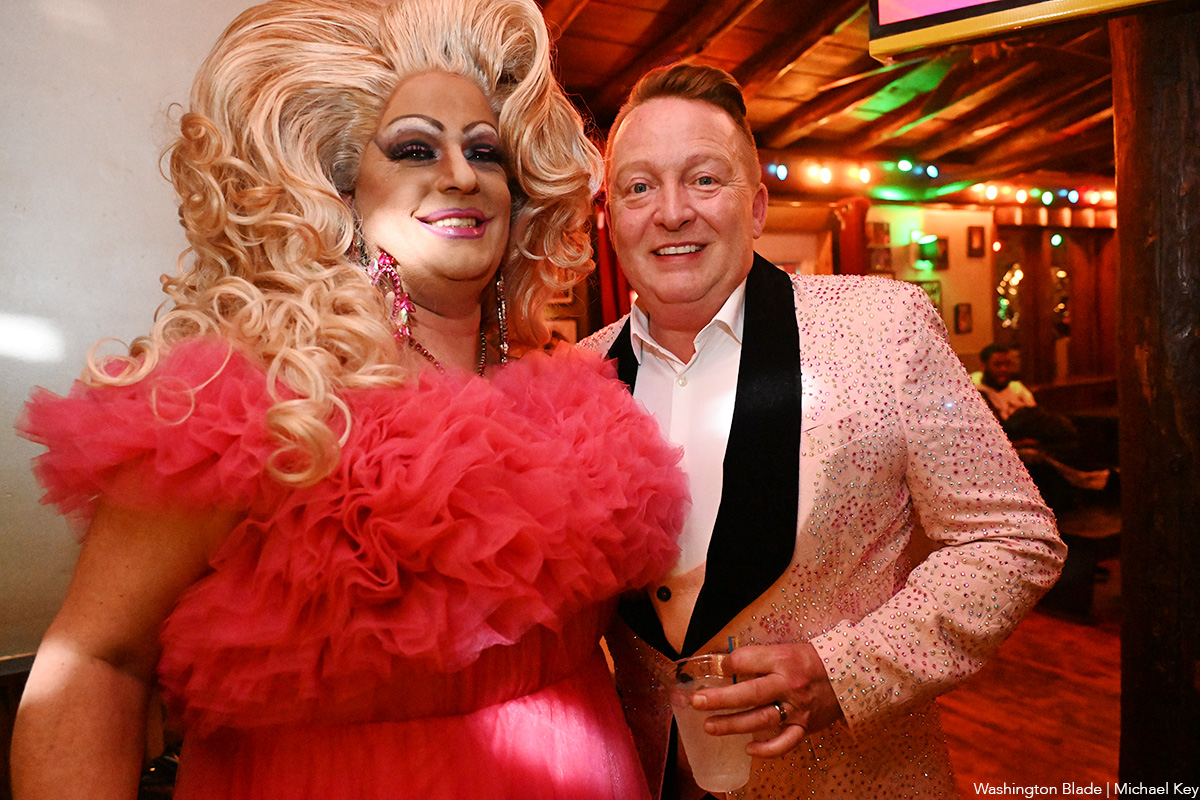
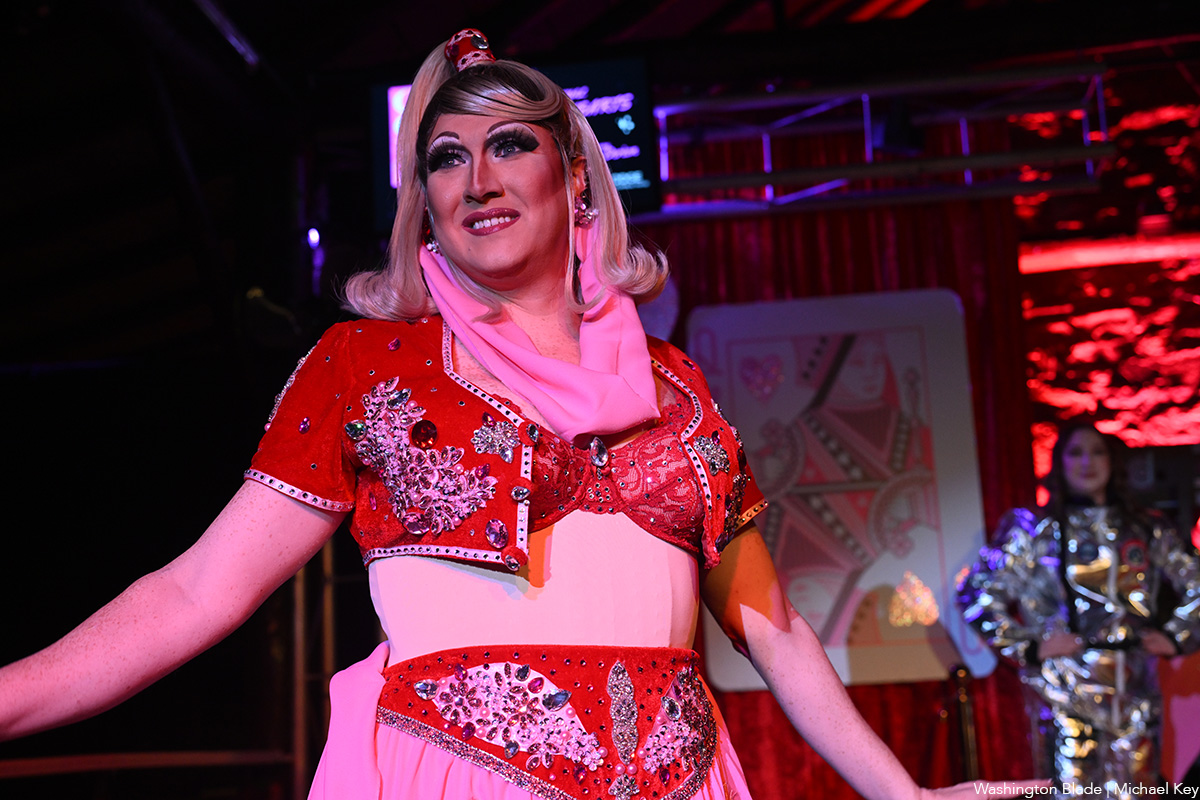
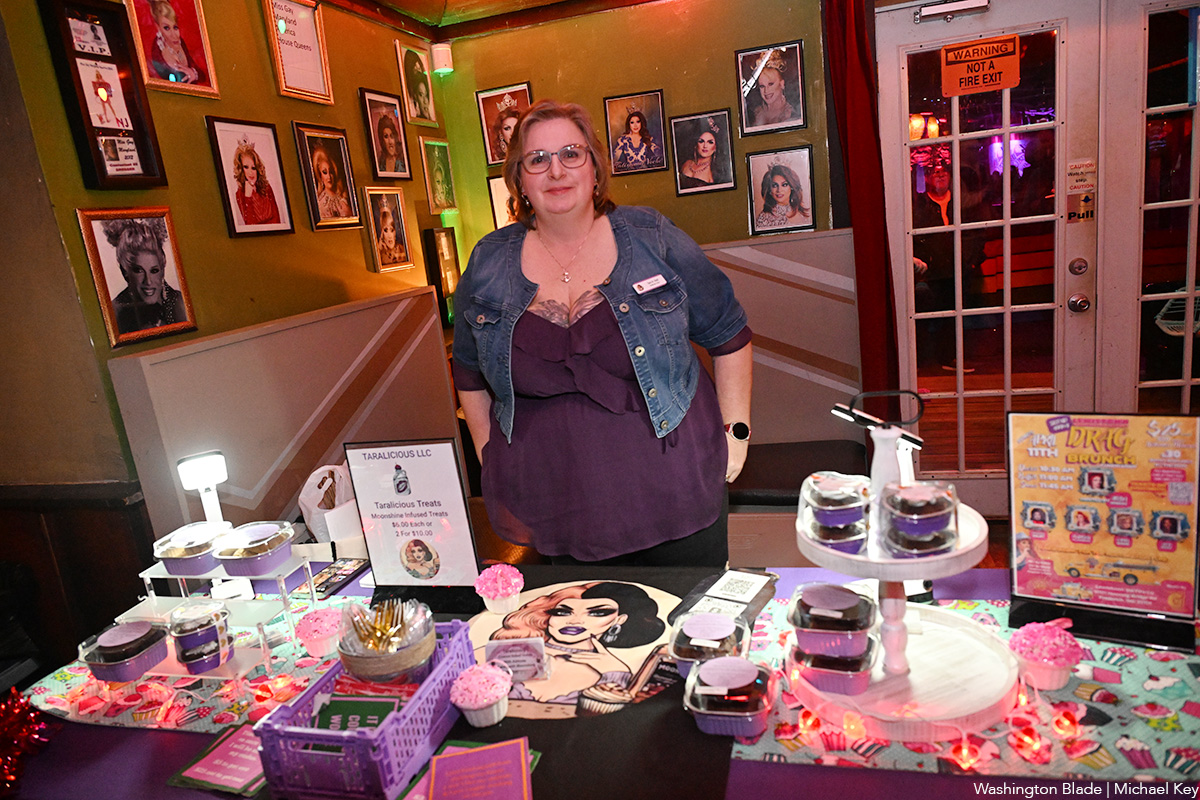
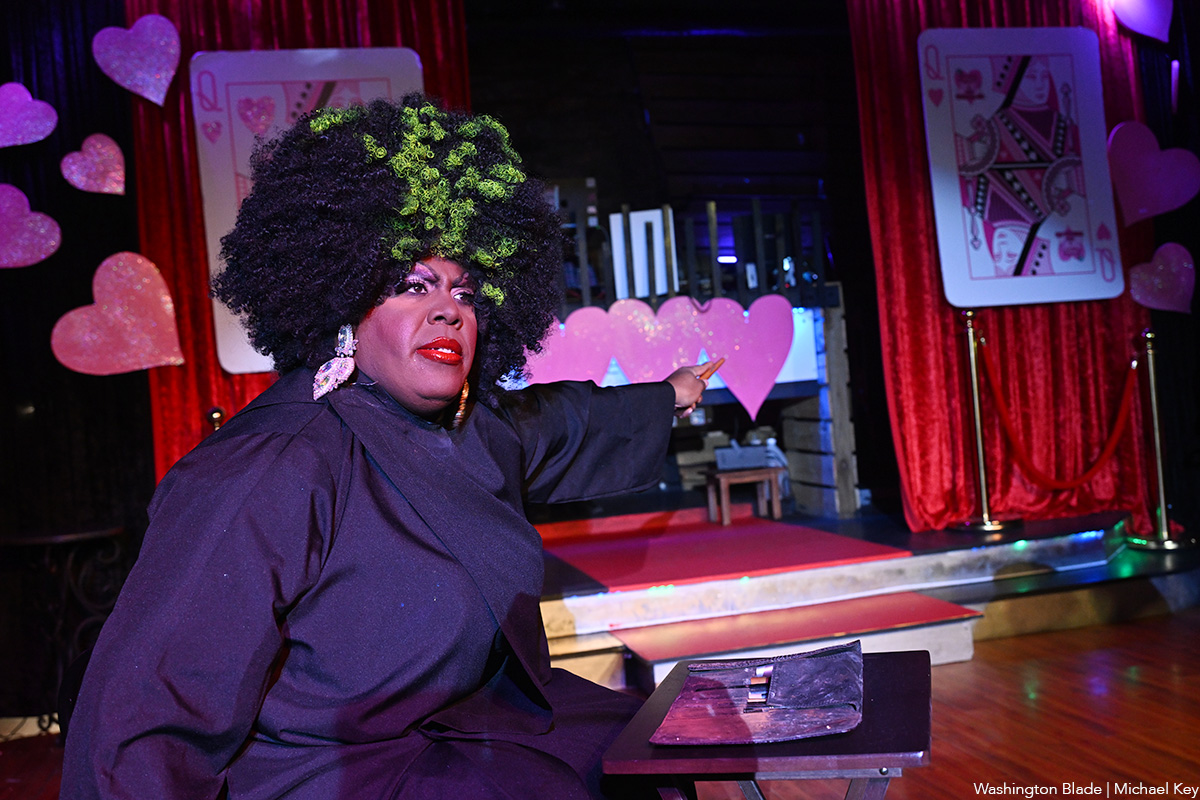
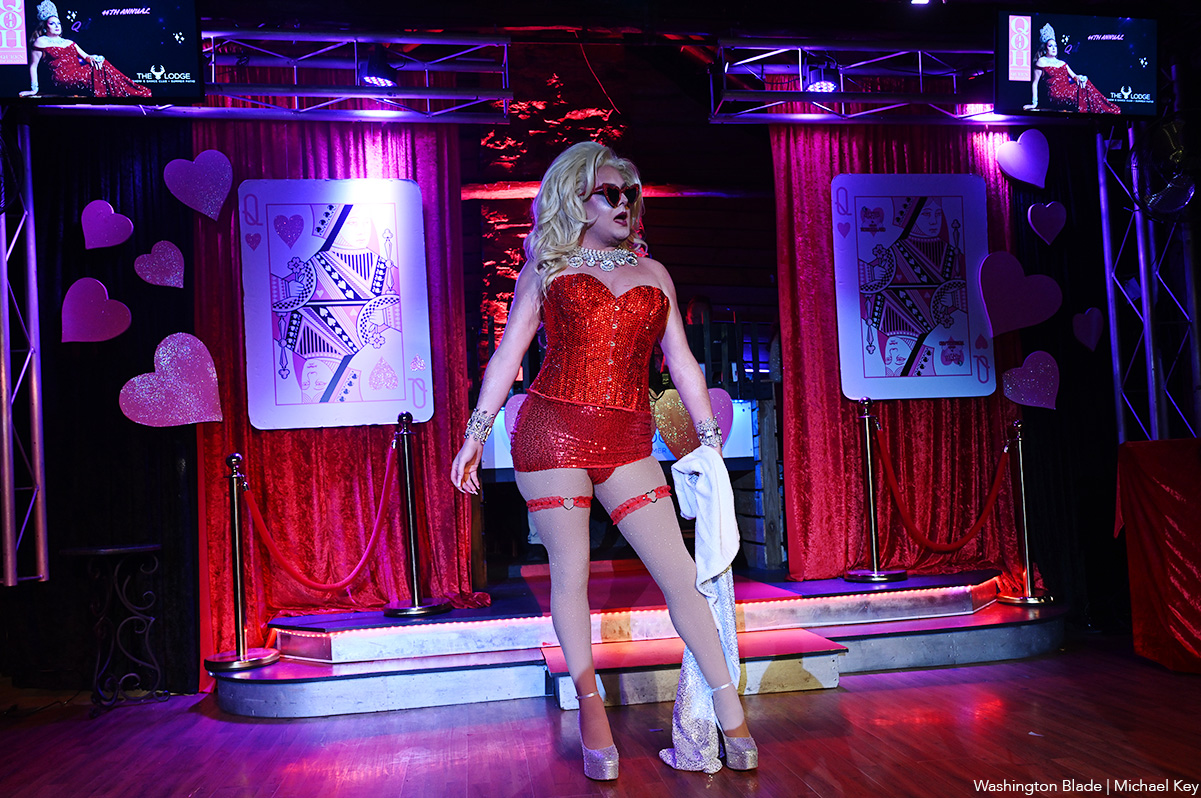
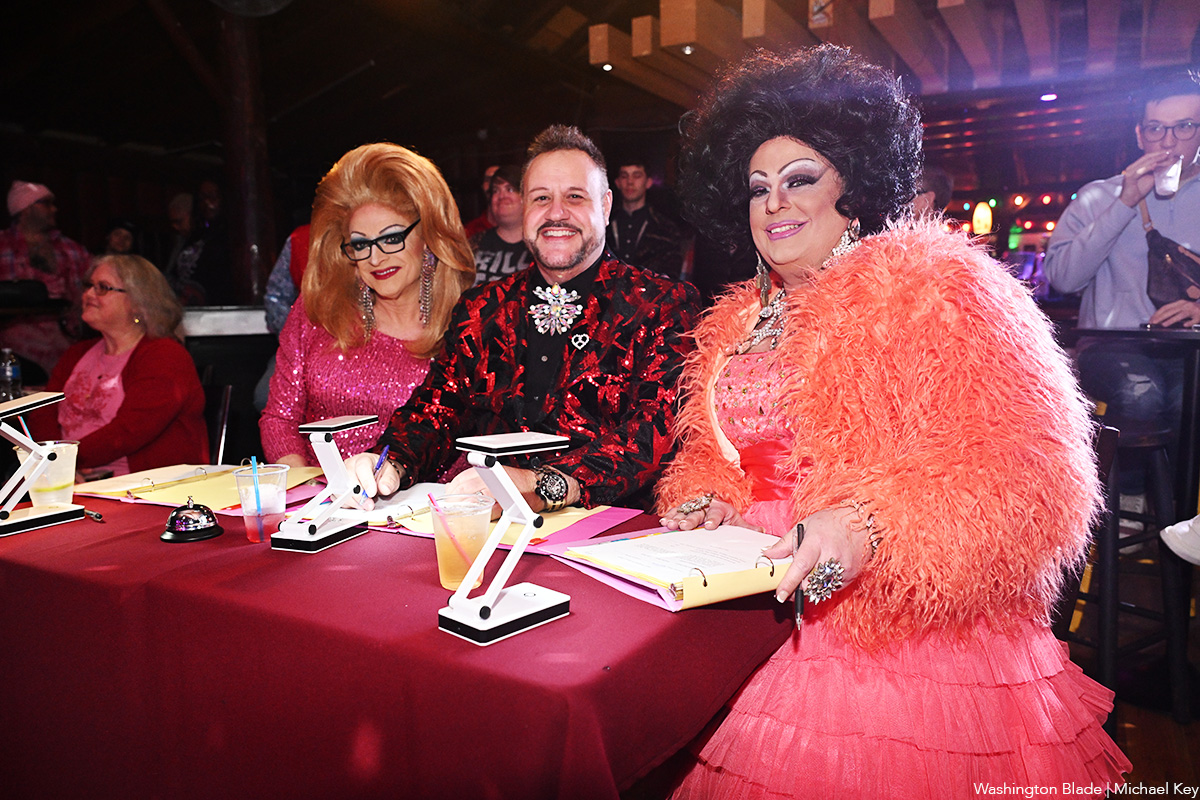
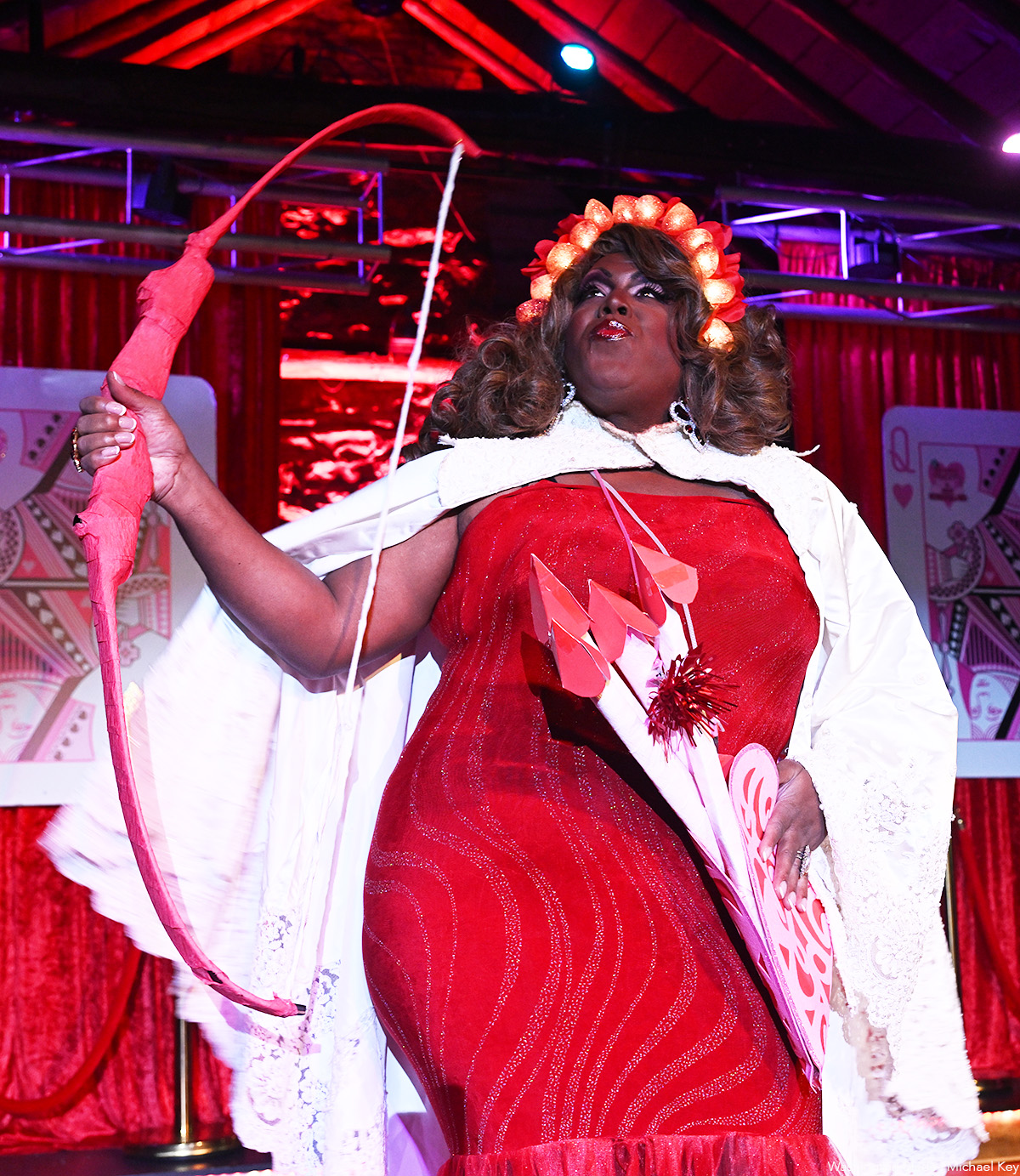
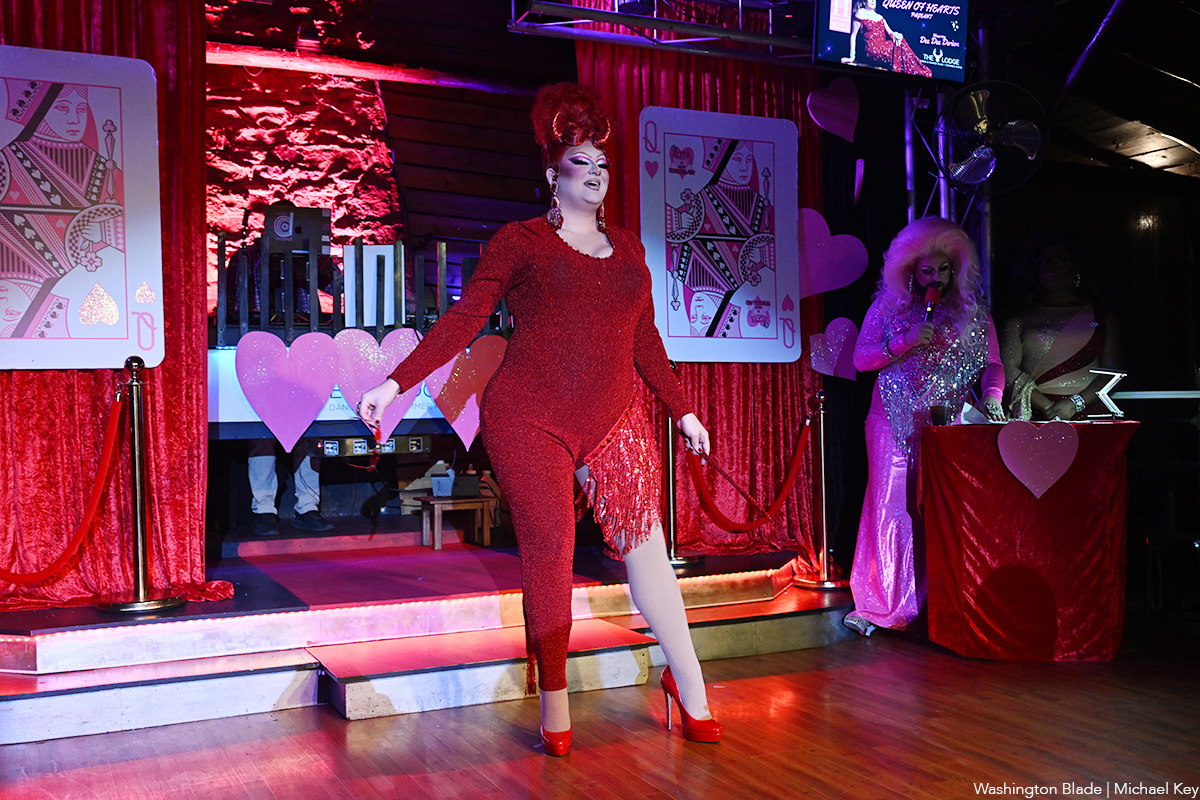
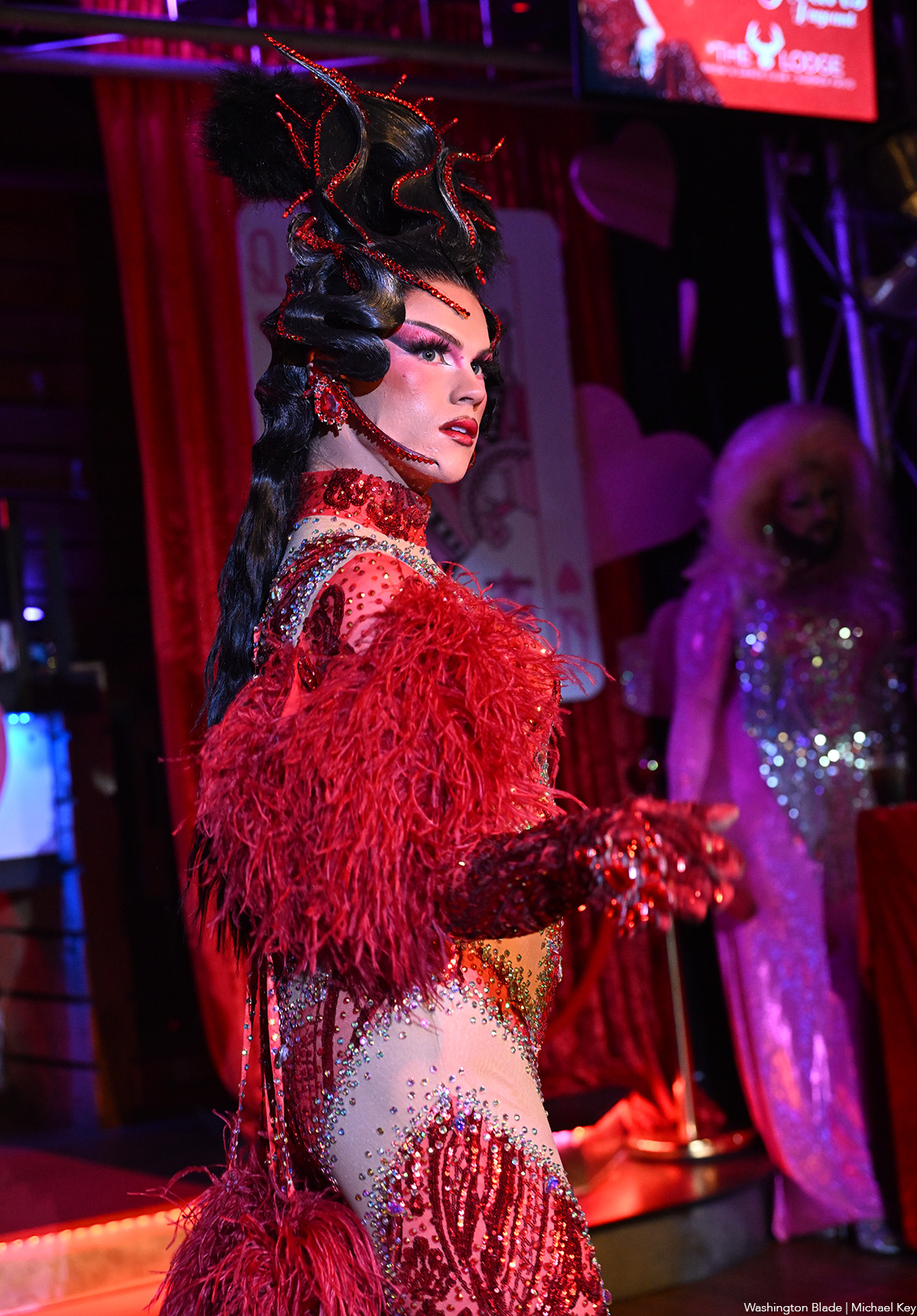
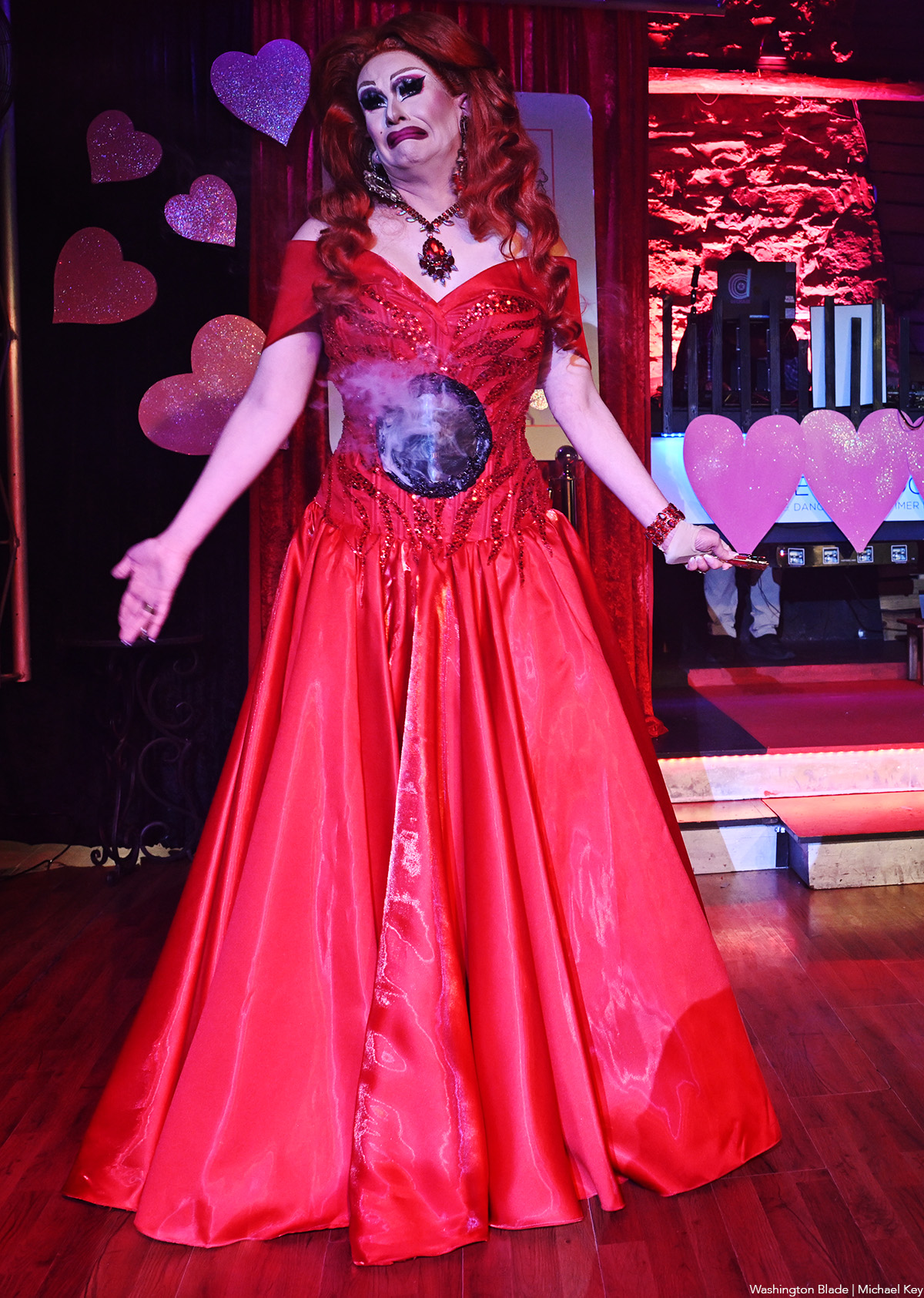
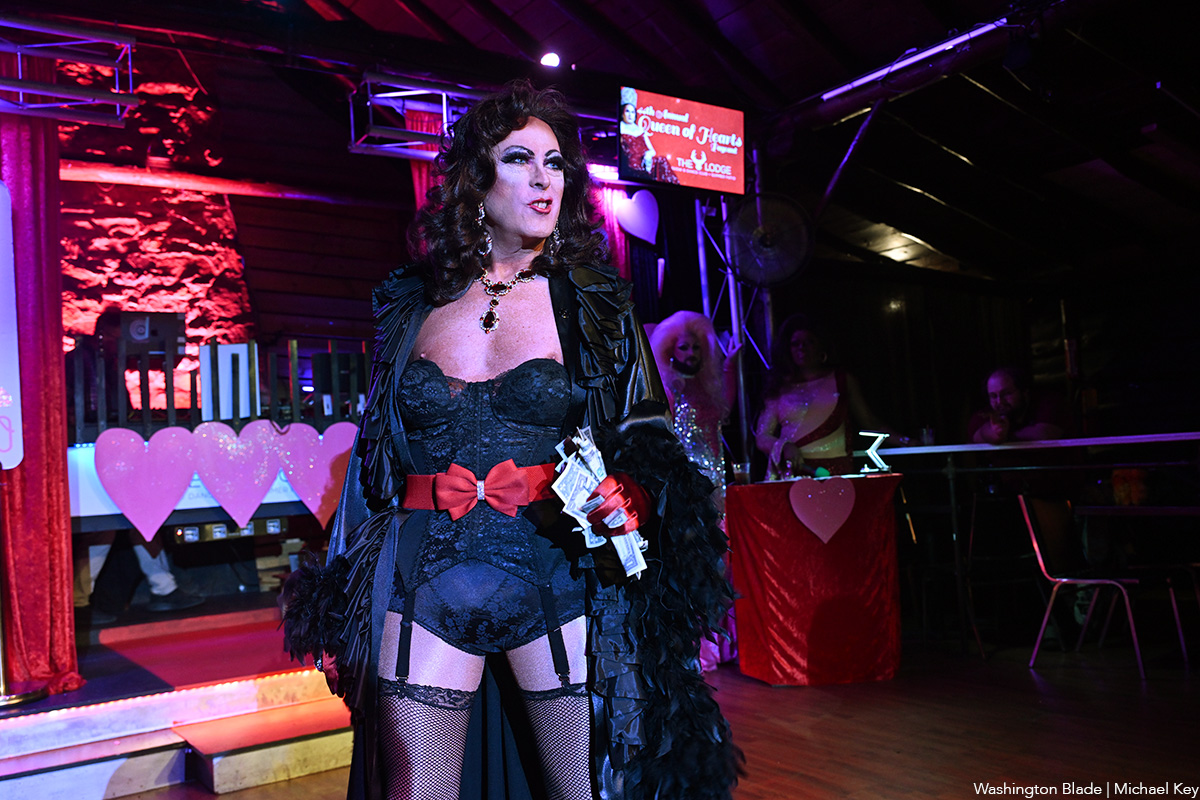
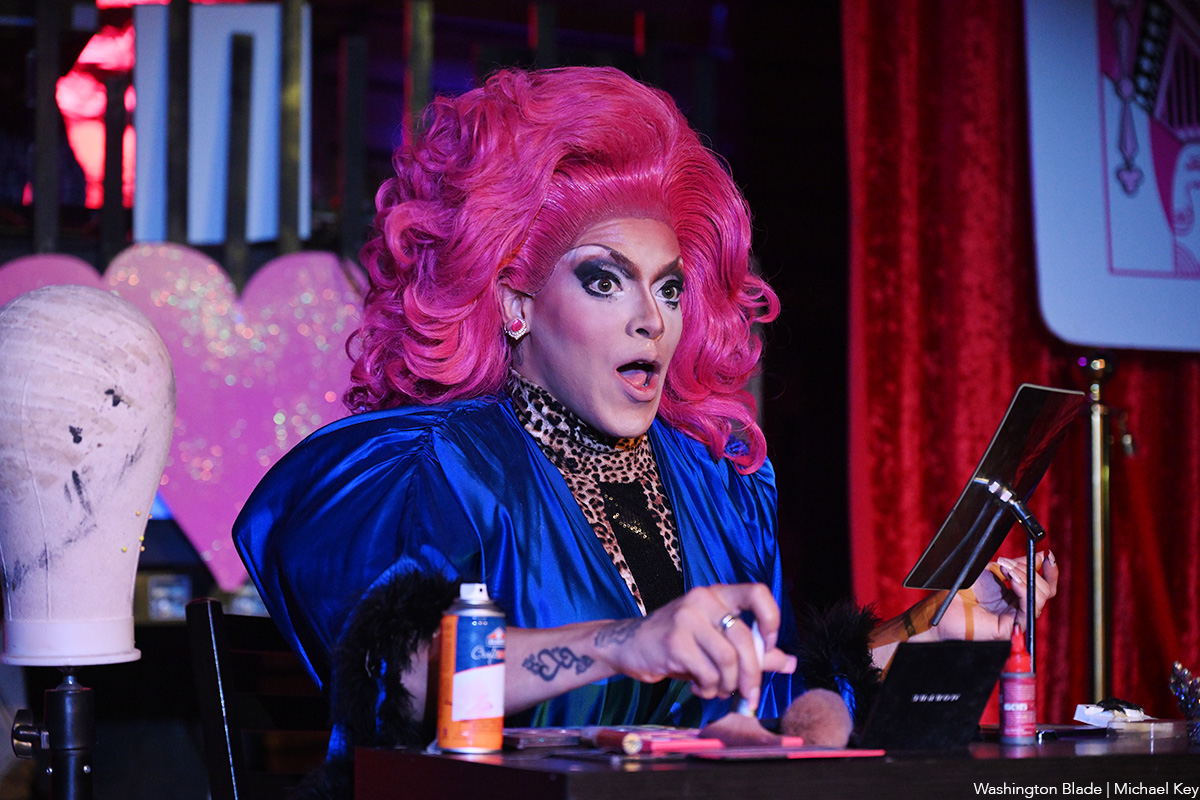
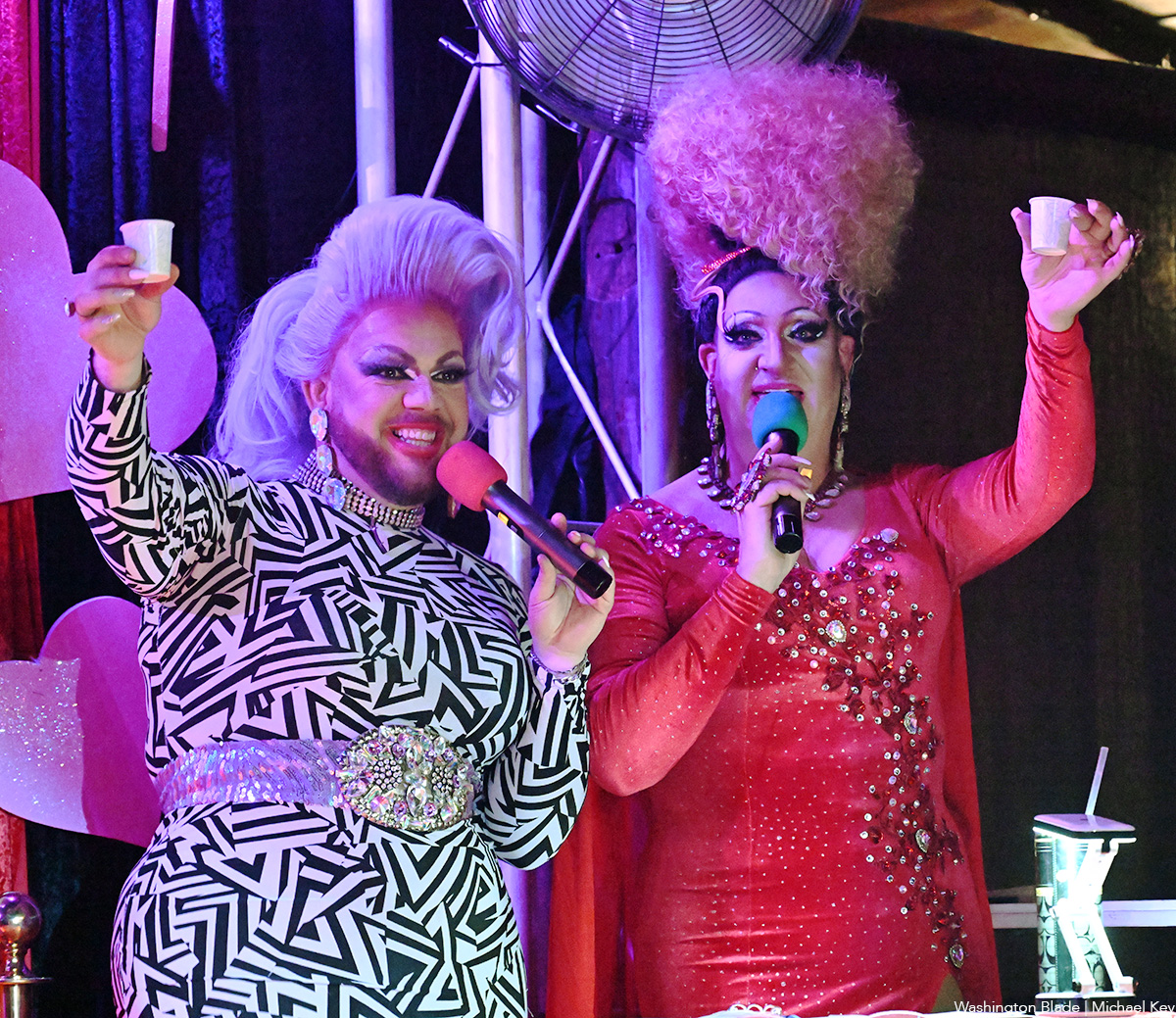
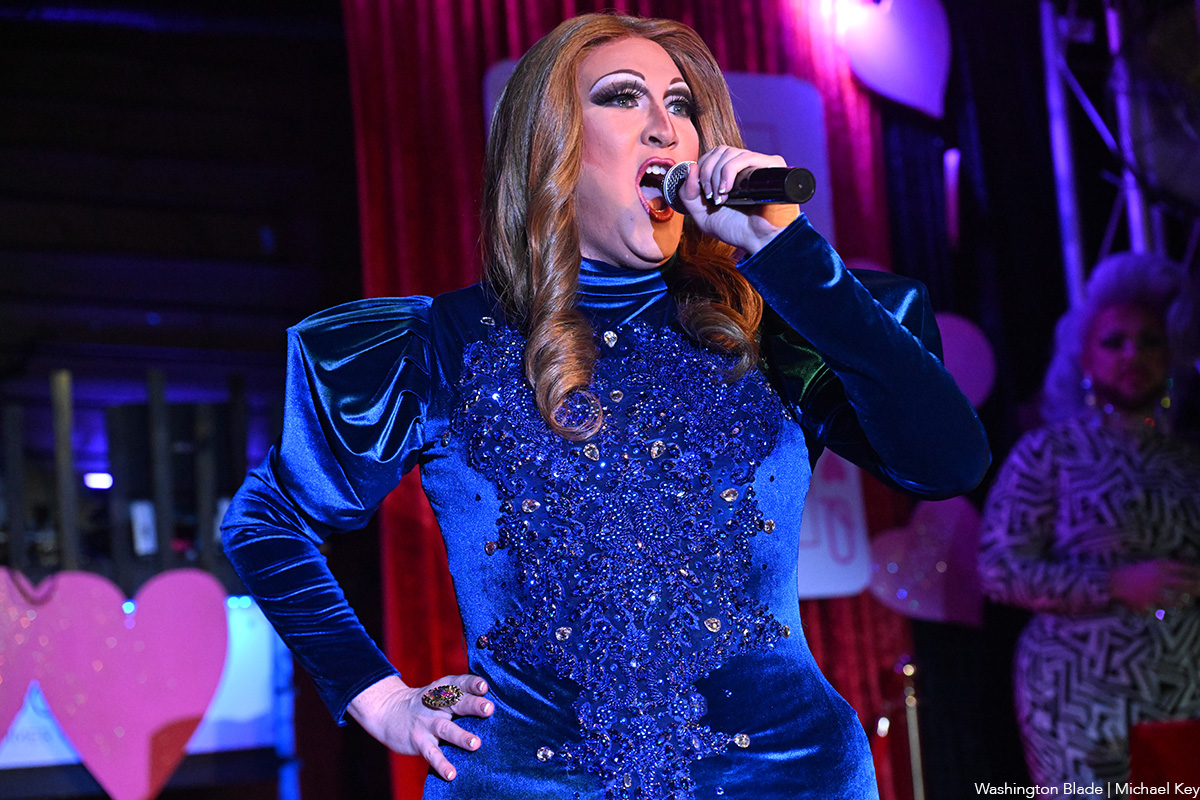
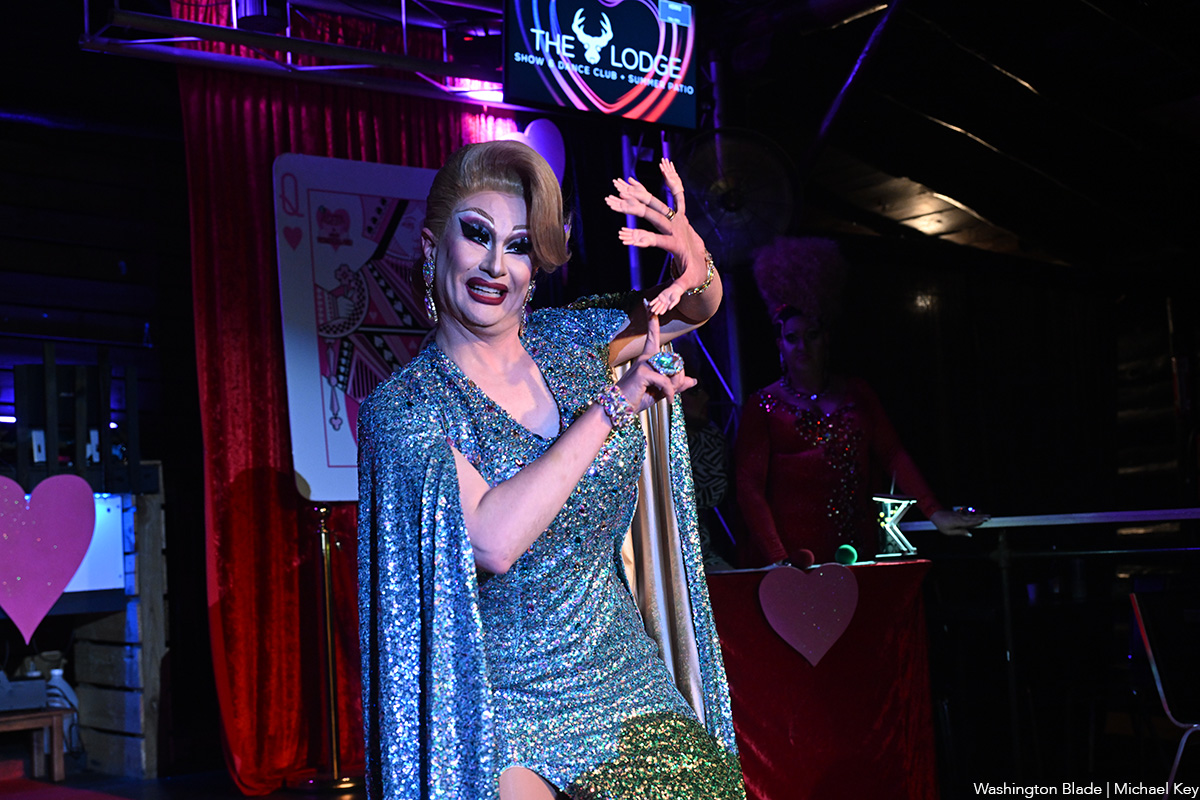
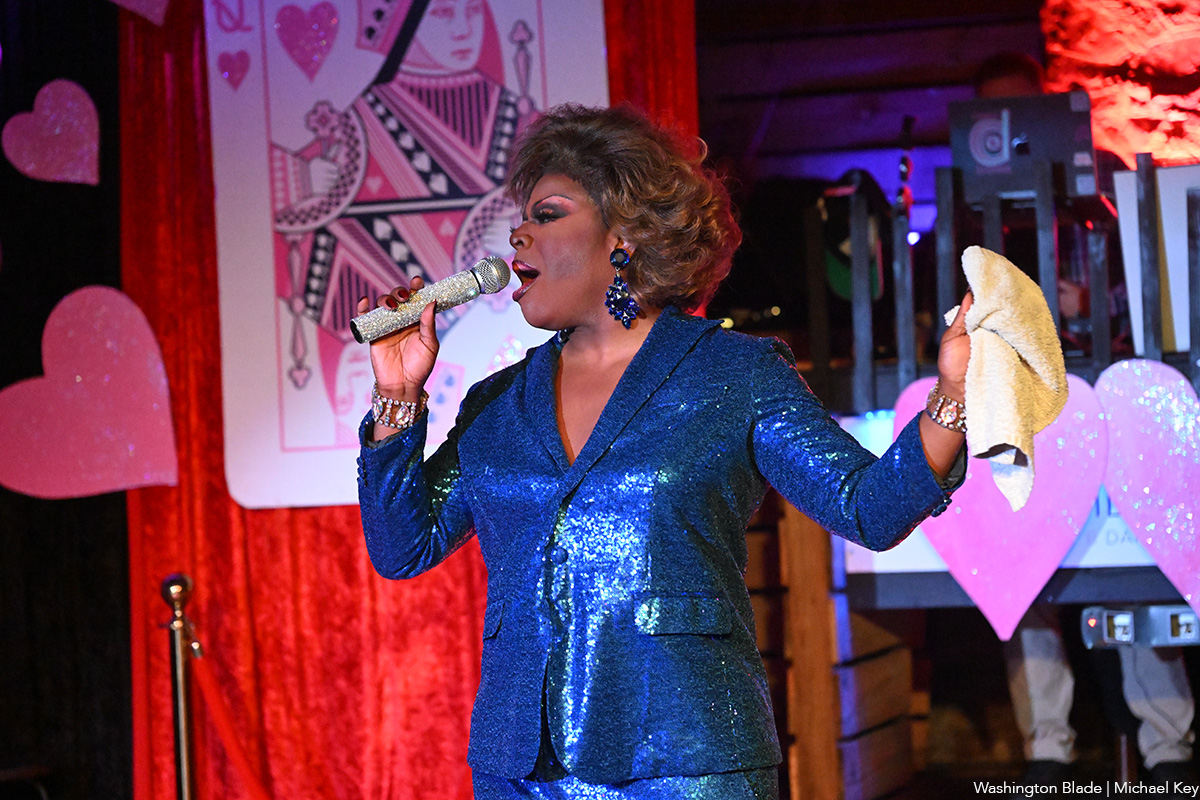
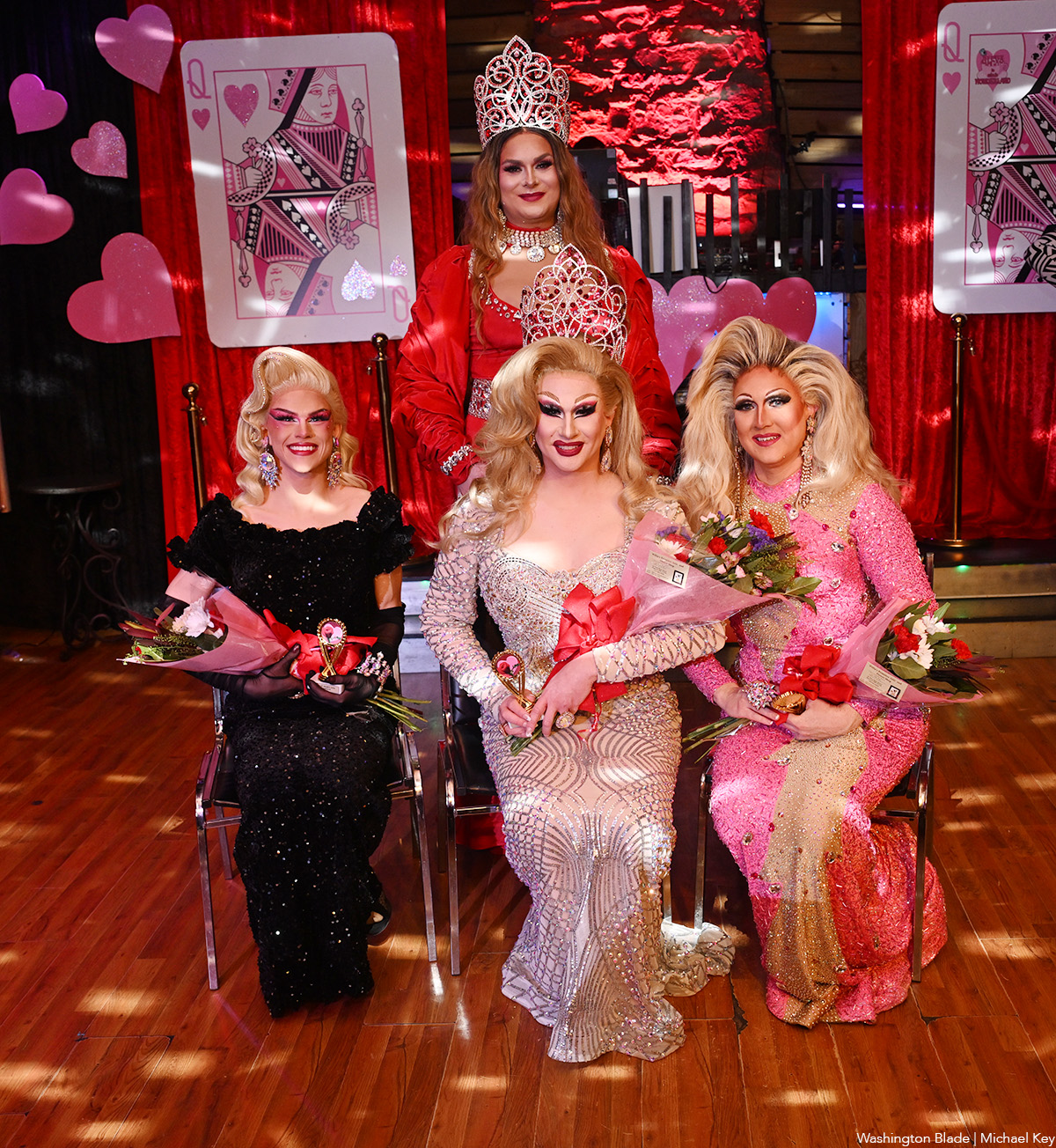
View on Threads
-

 Mexico5 days ago
Mexico5 days agoUS Embassy in Mexico issues shelter in place order for Puerto Vallarta
-

 Real Estate5 days ago
Real Estate5 days ago2026: prices, pace, and winter weather
-

 Theater5 days ago
Theater5 days agoJosé Zayas brings ‘The House of Bernarda Alba’ to GALA Hispanic Theatre
-

 Netherlands4 days ago
Netherlands4 days agoRob Jetten becomes first gay Dutch prime minister

